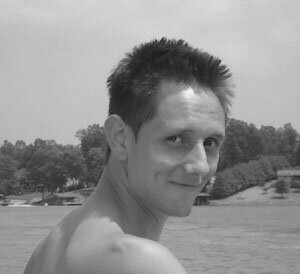ESSAY- Being whole: A life cut short, and lives restored

Jeremy Pinkerton
FAMILY PHOTO
"Brain death was achieved at 11:30," his father said.
It was just two days since we'd heard about Jeremy's accident. The first email came from Tennessee, the second from California, telling us of events unfolding just down the road in Charlottesville.
Tragedy crosses state lines. Just as Jeremy had been attempting, as he drove through Virginia that Thursday on a thunderstormed highway, slick with rain. Just 22 years old. He was injured only above the neck, but the email said he wouldn't recover.
We tried understanding the words. Was he dying? Did it mean he'd live but as an incomplete person? I imagined the golden boy trapped forever in a hospital room.
His parents, our friends, were camped out at UVA hospital. They said to come by any time. His mother was a doctor well established, and so the hospital was bending the rules for visitors.
We arrived to a scene where clutches of young people, entwined on the floor, wept and stroked each other. His sisters were among them. It was a tumble of sweatshirts, lanky tan legs, and flip flops, and you couldn't easily tell the boys from the girls. For at that moment, these young men and women, most on summer breaks from college, were thrown back in time, and they sought comfort as children do.
We grownups spoke in the hall, and more easily interrupted our tears with laughter. For we had been down this road before, maybe not one this deeply rutted, but a road scarred by other losses. And so we knew that the laughter was a ruse, like a pressure cooker singing from the steam as it escapes.
Then we were ushered into the small room in the surgical intensive care unit, where Jeremy lay, where the cadre of friends and family was so large that one could barely find floor space. Twenty pairs of eyes gazed at the body on the bed, at the monitors above it with the irrelevant numbers that seemed so riveting.
What we also watched, though, was the clock. For it was a waiting game, as we were told that Jeremy was already, in his essence, gone. Now the doctors were making the calls, arranging the surgeries and the transports through LifeNet that would allow his body to be donated to others still clinging to life, to those waiting for the call, hoping.
When I knew him best, Jeremy was just four, an energetic imp with stunning dimples. He dashed and crashed, grinned and poked, and tested the rules at each turn. The body before me, however, had IVs in the arms, tubes in the mouth, and– to release the pressure on the brain– a large screw in the shaved head.
At first all I saw was a stricken body, unrecognizable. But then I looked more closely, and I saw the same mouth of that four year old boy. It had somehow survived the years while he grew to his lanky 6-foot-2 self, the well-loved athlete on the University of Maryland sailing team.
The next morning we called. How were things going, we asked. "Brain death was achieved at 11:30 last night" his father replied, "so now we can go on to the next step." The last plans for organ donation could be put in place.
Many people need organs; few donate. This year in Virginia, those in need number 2,882. So far, there have been 105 donations. Jeremy's heart, lungs, liver, and kidney would save four more on the waiting list. His tendons, bones, skin, corneas, and other tissues would help over 1,000 more.
"We are so happy we can do this," his mother said, her eyes drooping from crying and staying awake so long.
His friends, many of them members of the sailing team, gathered around. Strong and full of life, they told stories of Jeremy's mischief, adventures, and achievements. As a computer science major with one semester to go, he excelled at hacking assignments and built computers from scratch. He played soccer with flair. He challenged his friends to join him in taking on better opponents despite certain defeat. He loved to sail and ski. His family said he was "happiest on water and snow."
I thought of the heart that would soon beat in someone else craving life, the lungs that would carry someone else down the soccer field, the eyes that would help someone else see the water and snow. I thought of the dimples that were gone forever. And I wished that we could all be whole again.
***
Jeremy Alan Pinkerton died August 15, 2010. For more information, see www.jeremypinkerton.org.
~
Gayla Mills lives in Richmond, teaches English at Randolph-Macon College, and writes.
#
2 comments
He lives on in memory
This is a beautiful article. Jeremy was a close friend of mine and he will be forever missed. This article has truly described the amazing life Jeremy led and the generous nature he had even after death. I will forever feel a "Jeremy sized hole in my heart."